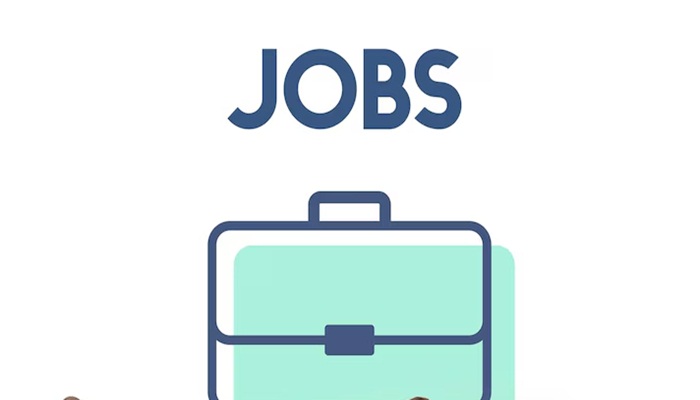The hum of artificial intelligence is no longer a distant whisper; it’s a growing chorus in the modern workplace. Headlines about tech companies slashing thousands of jobs as they pivot towards AI and reports of approximately 32,000 tech professionals losing their jobs by February 2024 alone paint a concerning picture. The anxiety is palpable, with many understandably wondering, “Will AI take my job?”. While the rise of AI in white-collar roles is undeniable, viewing these developments solely through the lens of job displacement misses a crucial point: AI is a powerful tool, and its impact on our careers is not a predetermined fate, but a future we can actively shape. [CBS News]
AI Layoffs: Understanding the Trends and Impact
The initial wave of automation primarily impacted manual, repetitive tasks in manufacturing. However, the recent advancements in AI, particularly generative AI capable of creating content and summarizing complex ideas, are now encroaching upon traditional white-collar domains. Companies like Alphabet, Amazon, SAP, Grammarly, and Duolingo have announced layoffs partly attributed to AI implementation or a strategic reallocation of resources towards AI technology. As Orsolya Kovács-Ondrejkovic from Boston Consulting Group notes, employees have “internalized that their jobs may fundamentally change” due to GenAI. [TechTarget]
This shift is driven by the potential for AI to automate routine tasks across various industries, from manufacturing and transportation to finance and healthcare. Logistics giant UPS plans to eliminate 12,000 jobs, including in the pricing department, as AI can handle the calculations efficiently. Even roles requiring specialized skills are not entirely immune; AI assists doctors in diagnosing diseases more accurately and helps lawyers analyse legal documents more efficiently. [Global Finance Mag].
Which Jobs Are Most At Risk?
To navigate this changing landscape, the first step is to critically assess your own role and understand which of your tasks have the potential for automation. Consider the parts of your job that are monotonous, repetitive, and involve processing large amounts of data or information.
Websites like “Will Robots Take My Job?” can offer insights into the likelihood of automation for specific roles. The Society for Human Resource Management suggests that endangered species include financial analysts, lawyers involved in regulatory compliance, software developers who debug and optimize networks, and human-resource experts. Some jobs that are at high risk of automation:
- Telemarketers – Automated systems handle outreach efficiently.
- Receptionists – Chatbots and virtual assistants manage routine inquiries.
- Proofreaders – Advanced grammar and spell-checking software are easier.
- Bookkeeping Clerks – AI-powered accounting software reduces manual tasks.
- Compensation & Benefits Managers – HR tech platforms streamline benefits administration.
Securing Your Financial Future in an AI-Driven World
It’s possible that only certain aspects of your job, like data entry, will be automated, potentially boosting your productivity by freeing you from menial tasks. Understanding partial automation is also crucial. Avinash Bharwani, Vice President at Jetking, highlights that while AI handles middle tasks, entrepreneurship and temporary staffing remain, emphasizing a shift rather than complete elimination. [India Today]
While not explicitly detailed in the provided sources, a proactive strategy for navigating economic uncertainty and potential job market shifts includes creating multiple income streams. This could involve freelancing, consulting, developing a side business, or investing. Diversifying your income sources can provide a financial safety net and increase your overall resilience in a rapidly evolving economic landscape.
AI-Proof Skills: What Machines Can’t Do
While AI excels at processing information and automating routine tasks, it currently struggles to replicate uniquely human capabilities. These are the skills that will become increasingly valuable in an AI-driven world. Focusing on developing and leveraging these human strengths is paramount for job security.
Roles like dentists requiring precision and patient interaction, compliance officers interpreting complex and ever-changing regulations, and chief executives informing broad strategy and motivating teams rely on these skills. Tasks demanding manual dexterity and hands-on expertise, such as those performed by skilled tradespeople like electricians, mechanics, and carpenters, are also challenging for machines to master. [US Career Institute]
Why Soft Skills Matter More Than Ever in The AI Era
Complex decision-making and the ability to handle nuanced judgment and adaptability are also firmly in the human domain. Creative jobs like those of artists, designers, musicians, and writers are also safer as automation cannot replace true creativity, originality, and imagination.
Human interaction is a key trait that AI cannot replicate effectively. Professions requiring empathy, building trust, and managing relationships, such as surgeons needing the human touch when lives are on the line, clinical psychologists providing tailored therapy and emotional support, nurses offering compassionate bedside care, and social workers providing comforting human connection, are considered relatively AI-proof. These high-value capabilities enhance employability and are areas where human judgment remains superior to algorithmic solutions.
Emerging Careers in the AI Era
Between 2012 and 2023, jobs with AI-specific skill requirements increased sevenfold, highlighting the growing demand in this sector. The rise of AI necessitates professionals with the skills to build, maintain, and oversee AI systems. Invest in top-notch training opportunities, especially related to AI system work, to reduce the fear of job loss and enhance your ability to work alongside AI. Consider specializing in niche areas of AI and machine learning, such as natural language processing, computer vision, or robotics, to become a subject matter expert in a specific domain.
Future-Proofing Your Career: What You Can Do Today
Cultivate a growth mindset and embrace challenges as opportunities for learning and growth. Engage in lifelong learning by taking online courses, certifications, and workshops to deepen your knowledge and acquire new skills in areas related to your industry and emerging technologies. Enhance your skill set by seeking opportunities to work in different teams and pursuing short courses and certifications. The World Economic Forum highlights analytical thinking and innovation, critical thinking and analysis, and creativity, originality, and initiative as top work skills for 2025. [Hubspot]
As AI takes over more routine tasks, soft skills like emotional intelligence, communication, collaboration, and empathy will become increasingly sought after. These interpersonal skills are difficult to automate and are essential for effective teamwork, leadership, and building strong relationships with colleagues and clients.
Hone your interpersonal skills, communication abilities, and adaptability to complement your technical competencies and differentiate yourself in the job market. Build strong communication, collaboration, and problem-solving skills, and try to develop emotional intelligence to improve team dynamics and leadership potential. Human Resource Managers and Sales Managers, roles requiring high emotional intelligence and strong interpersonal skills, are considered to have a low risk of automation. Kate O’Neill, author of Tech Humanist, emphasizes that jobs that benefit from emotional intelligence, understanding situational context, making judgment calls, and seeing nuance and meaning are better done by humans. [Hubspot]
Thriving Alongside AI: How to Stay Relevant
Instead of fearing AI as a competitor, embrace it as a collaborator that complements your skills and abilities. Learn to leverage AI tools and technologies to augment your work processes and enhance your productivity. By embracing human-machine collaboration, you can harness the power of AI to automate repetitive tasks, analyse vast amounts of data, and make informed decisions more efficiently.
Identify AI solutions relevant to your industry and champion their adoption in your workplace. For example, salespeople are using AI to analyse sales calls faster, and marketers are leveraging AI for content creation. Understanding how AI can assist in your work and improving your skills to work alongside AI will increase your market value and boost your confidence.
To position yourself as a valuable asset in the evolving workplace, show initiative in AI-related projects within your company. Volunteer to participate in teams exploring or implementing AI solutions relevant to your work. Demonstrating a willingness to learn about and work with AI can make you an indispensable part of your organization’s future. Understanding how the rest of the departments work and increasing your area of expertise can also make you more valuable if your current role is threatened by automation. [Vault]
Navigating an AI-Transformed Job Market
The job market in the age of AI will be characterized by rapid change. Agility and adaptability are essential traits for career resilience. Be prepared to pivot and evolve in response to technological advancements and industry trends. Employees are increasingly seeking job security that ensures they can adapt and thrive as skills evolve, regardless of AI’s impact. Seek employers who provide opportunities to develop new skills to ensure long-term employability.
Stay informed about developments in AI and emerging technologies. Monitor AI trends and industry shifts regularly to understand potential impacts on your field and identify emerging opportunities. Research the automation risk in your specific job field to understand if and how AI might affect your role. Keeping abreast of these changes will allow you to proactively adapt your skills and career path.
As AI becomes more integrated into the workplace, it’s crucial to consider the ethical implications of its deployment. Advocate for transparency, accountability, and fairness in AI recommendations, particularly in sensitive areas such as hiring and performance evaluation. The Partnership on AI has released Guidelines for AI and Shared Prosperity to help stakeholders steer AI in service of shared prosperity and improved job access and quality. [Brookings] Engaging in discussions about responsible AI implementation can help ensure that technology is used in a way that benefits both the organization and its employees.
AI Is a Tool, Not a Threat If Used Wisely
The AI revolution is undeniably transforming the world of work. While concerns about job displacement are valid, it’s essential to remember that AI is fundamentally a tool. Like any powerful instrument, its impact depends on how we choose to wield it. By understanding the capabilities and limitations of AI, focusing on developing uniquely human skills, embracing continuous learning, and proactively adapting to change, we can not only safeguard our careers but also thrive in this new era of intelligent automation. The future of work in the age of AI is not about humans versus machines, but about the powerful symbiosis that can emerge when human ingenuity and artificial intelligence work together.




















